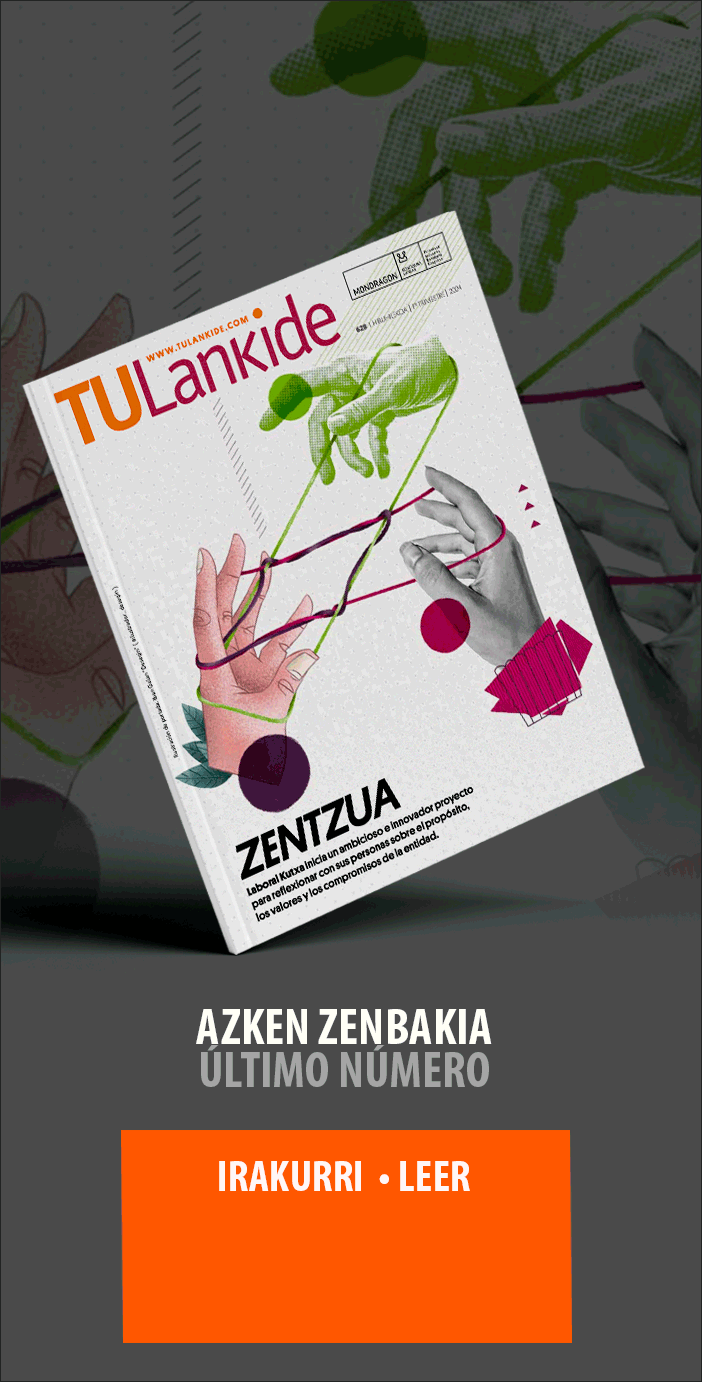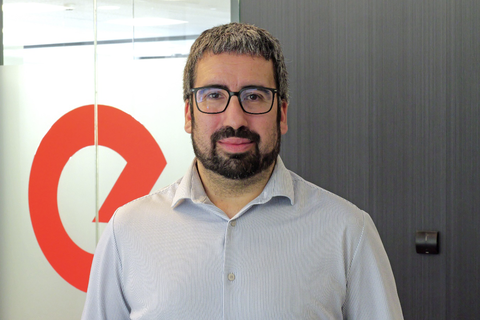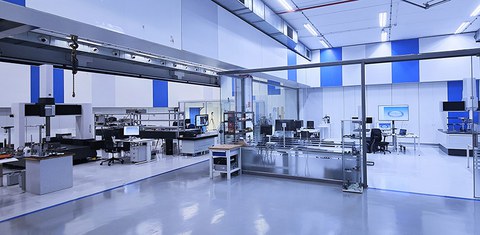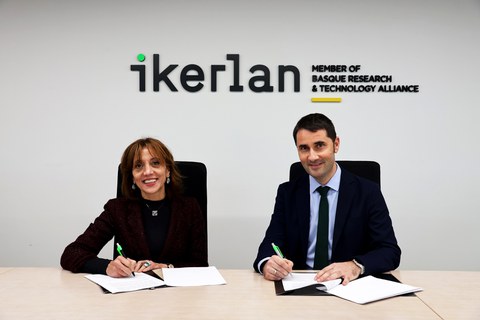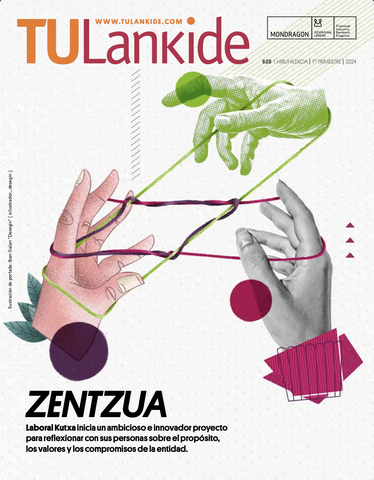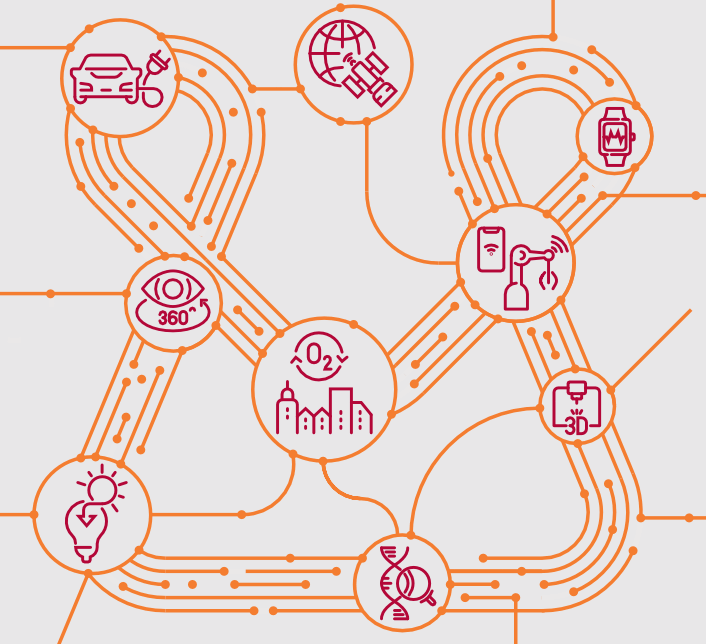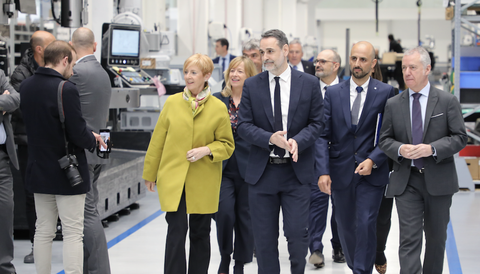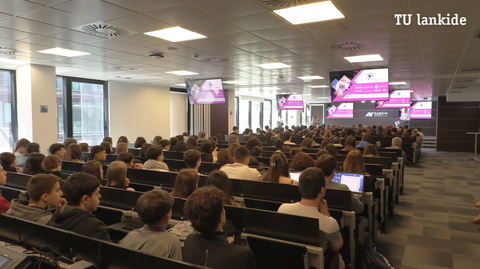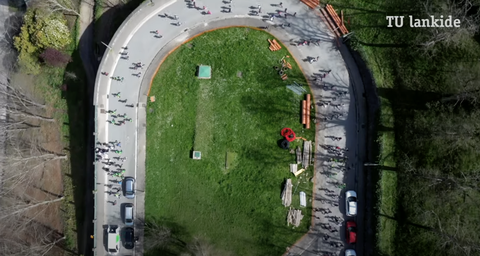Most read
- 1. Arkaitz Etxezarreta, new CEO of Erreka
- 2. Ideko focuses on sustainability and digitization in the aerospace industry at JEC World 2024
- 3. Agreement to reinforce the Basque Country's capabilities in disruptive technologies
- 4. Pello Rodríguez Zabaleta will replace Iñigo Ucín as president of MONDRAGON, starting August 1, 2024
- 5. Orbea and Lotto Dstny embark on a new era in the pursuit of excellence
- 6. Everything you need to know about MONDRAGON, in Explore MONDRAGON
- 7. Ikerlan Technology center opens new headquarters in Bilbao thanks to the agreement signed with the city council
- 8. An international ideas laboratory lands at MONDRAGON
- 9. Danobatgroup maintains its commitment to talent in 2023
Ikerlan and Multiverse Computing form a ground-breaking alliance
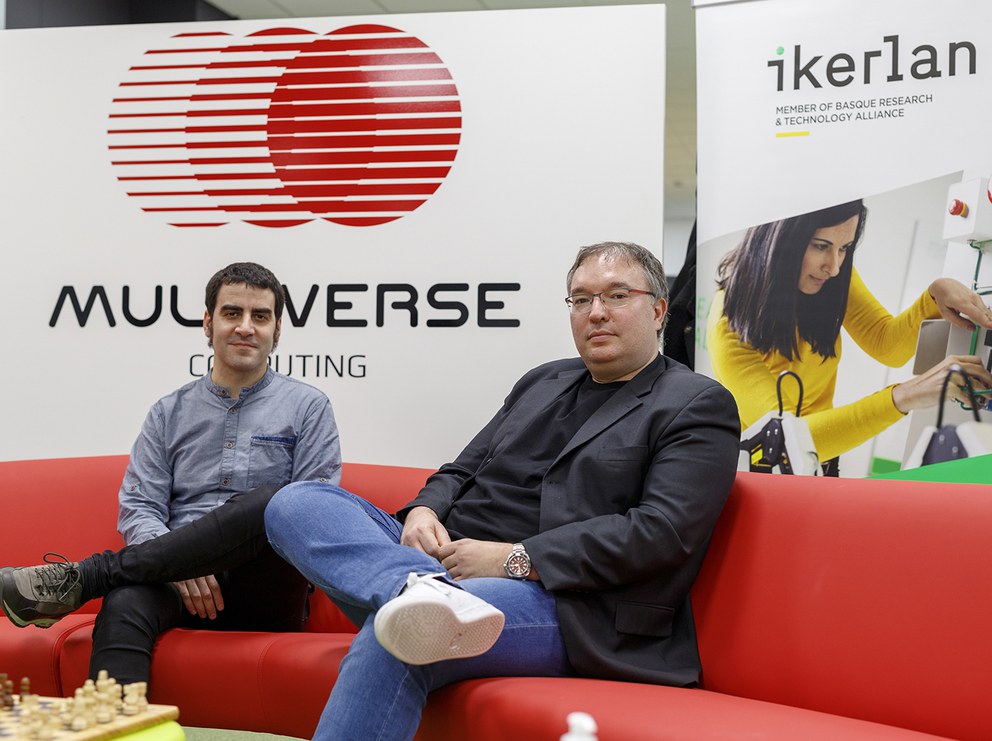
Thirty-five years ago, the multi-sector technology centre, Ikerlan, was at the forefront of research into artificial intelligence and its applications for industry in Spain, a technology that was just starting out at that time but which it already perceived would revolutionise the technological paradigm. Today, quantum computing is emerging as the new great conceptual leap forward and Ikerlan intends to be, once again, at the forefront. The technology centre has formed a ground-breaking alliance with Multiverse Computing, an international leader in quantum computing technologies from San Sebastian, within the framework of quantum computing as applied to industry. More specifically, they will work together to evaluate the immediate detection of anomalies in industrial processes in the advanced manufacturing sector. This alliance establishes the Basque centre as the leading international technology centre doing research in this field.
“This is a ground-breaking agreement that will allow us to validate the maturity of these technologies for industrial application and position us as a world leader in Quantum Machine Learning technologies for industrial application, an area that no one has yet explored and which would have a great impact on industry, allowing us to exploit this technology to improve, for example, the identification of imperfections in different elements and to do so in much shorter processing times than at present", explained Mikel Azkarate-Askatsua, Head of the Reliable Embedded Systems department at Ikerlan.
The technology centre, together with MULTIVERSE, has involved a multidisciplinary team of six people in this project, specialists in machine learning, data analytics and quantum computing. “Working together with Ikerlan, a leading technology centre in its areas of specialisation, applying quantum technologies in advanced manufacturing processes is an important challenge that will contribute high competitive value to industrial companies. Multiverse Computing and Ikerlan will initiate a process of "strategic collaboration" based on the contribution of ongoing value and trust, so that we become a leading technological partner for their R&D&I processes.
This partnership forms part of Multiverse Computing's strong commitment to work towards establishing a leading European quantum ecosystem in Gipuzkoa", explains Enrique Lizaso, co-founder and CEO of Multiverse Computing.
Thanks to the agreement with MULTIVERSE, Ikerlan's team of researchers will be able to work with real quantum computers from IBM and D-Wave, currently the leading companies in the production of quantum computing hardware and software, accessible via the cloud. This collaboration is the result of Ikerlan, together with LKS Next and the MONDRAGON Corporation, taking part as an investor in the San Sebastian start-up, within the framework of the business and investment strategy driven by the Corporation through its promotion fund.
Use case in the advanced manufacturing sector
In line with Ikerlan's vocation to develop useful technology for the real needs of companies (a domain in which the centre is a leading international player), Ikerlan and MULTIVERSE will research the use of quantum machine learning to detect imperfections in advanced manufacturing processes, specifically the detection of cracks in components. Ikerlan aims to improve accuracy in identifying where the fault is in the component and to reduce the time required for its detection. This is a common problem in industry and the technology centre has a significant amount of background information for the quantum algorithms, which the team will develop during the research, to work efficiently.
Quantum computing changes the classical computing paradigm based on the electronic state of transistors (ones and zeros), using quantum physics and phenomena such as quantum superposition and entanglement to exploit new data processing algorithms, significantly improving the efficiency and computation time of problems with large numbers of data and operations. Today's quantum processors can solve in about three minutes a random number generation problem that the most powerful classical supercomputers on the planet would have spent 600 million years on, although machines that shatter that performance are now available on the market. This is because the smallest unit of information in a quantum computer, the cubit, can take on several values at once (1, 0 or 1 and 0 at the same time), making it possible to perform calculations that cannot be carried out by a conventional computer.










